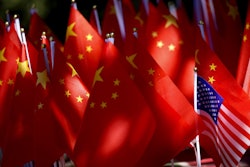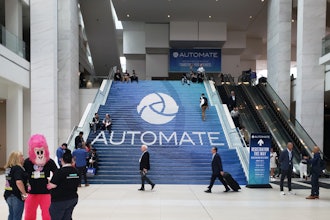Manufacturing was always likely to be in the cross hairs of any trade disputes between the U.S. and China. Its highly visible inputs and outputs mean that it is an easy political football to be thrown around the global trading services.
Already tariffs are driving down productivity and raising costs for U.S. manufacturers. Daimler recently reported that tariffs led to profits shrinking from $2.9bn to $2.09bn in the second quarter.
The challenges extend beyond tariffs to wild fluctuations in exchange rates. President Trump has accused China of manipulating its currency and keeping it low against the dollar.
Whether the Chinese Yuan was depreciated by design, or as a result of market responses to the trade war, it has put U.S. manufacturers exporting to Chinese markets at a further disadvantage.
U.S. manufacturers need not be passive victims. There are several straight forward steps that every business should take to effectively assess currency exposure and hedge to reduce.
Trade War Threatens U.S. exporters
As a result of escalating trade tensions the U.S. dollar has continued to rise against the Yuan. This strong growth is likely to drive demand in the U.S. for Chinese goods and reduce the impact of imposed tariffs.
Conversely, U.S. exporters will struggle as they lose competitiveness in target markets. The Administration’s recent proposal to raise the tariff by 15 percent on $200 billion of Chinese goods against a weak Yuan threatens to exacerbate an already expanding trade deficit, making trade much more expensive for U.S firms exporting goods.
Hedging Currency
The principle for how a business navigates these fluctuations in foreign exchange is fairly straightforward. Foreign exchange experts can help businesses monitor the markets, guiding them around currency fluctuations and allowing them to have a better chance of buying foreign currency when the dollar is strong.
Currency rates can have a number of impacts on businesses, but the most common challenge is around payment transactions.
Regardless of whether you are manufacturer importing machinery or exporting goods to China, at some point your business will have to make or receive a payment transaction to or from a foreign partner. It is at this point that currency fluctuations become real; potentially forcing you to accept poor exchange rates and the associated financial losses.
Likewise, if you are a business owner looking to expand your operations overseas and need to make a large one-off payment, you may notice considerable changes in currency rates in between the planning phase of the venture and the eventual launch of the project.
Fluctuating exchange rates need not to lead to huge company losses. Being prepared and well-advised can not only protect manufacturers from risks, but can also ensure they are making the most out of their international payments.
Working with foreign exchange experts allows a business to hedge its currency—where exchange rates can be locked in for a period of up to two years. Moreover, specialists in foreign exchange offer much better rates for currency transfers than most high street banks simply by the virtue of the expertise that comes from working on foreign exchange markets day in day out. Alternatively a business can get products that protect their budget rate, but still allow them to take advantage of favorable movements in the foreign exchange markets.
As an example, electric bike company Bultaco’s business is hugely affected by shifting exchange rates because it imports products from Spain. Any shift in currency against the Euro affects how much these imports cost.
So How Have They Managed the Fluctuating Foreign Exchange Market?
They use a “forward contract” that allows them to guarantee the price of currency over a six month period. It means they are not affected by sudden fluctuations in exchange rates and can keep their prices stable. They also take advantage of spot prices when they need to make a quick purchase—because foreign exchange experts can offer bank beating rates.
Finally, Bultaco also use a high-tech online foreign exchange service, which allows them to keep an eye on their business transactions 24/7.
Murky Waters Lie Ahead
It is too simplistic for a business to see itself as an exporter or importer. The realities of a global supply chain mean that in a period of fluctuation, it appears the only winners are those that deploy an effective FX strategy.
As the U.S. explores increasingly protectionist expect to experience a rollercoaster of currency highs and lows. Whether you expect tariffs to benefit or cost your business, you have the opportunity to enhance your profits through an effective foreign exchange strategy. Global trade demands a global perspective on currency models, and company finances. Ensure that you’re on the winning side of any currency markets.
David Herrick is U.S. CEO at moneycorp.






















